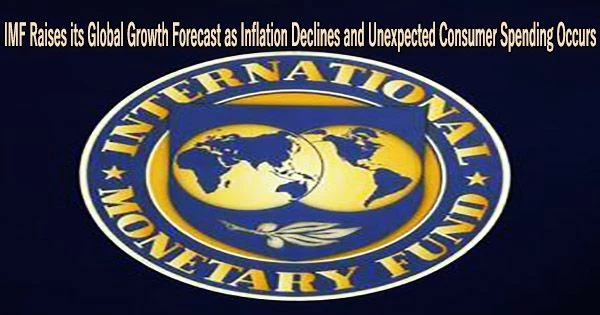The International Monetary Fund (IMF) raised its predictions for global growth for the year on Monday (January 30, 2023), but it issued a warning that rising interest rates and Russia’s invasion of Ukraine would probably still have an impact on activity.
In its most recent economic assessment, the IMF predicted that the world economy will expand by 2.9% this year, up 0.2 percentage points from its previous prediction made in October. That figure would represent a reduction from the 3.4% expansion in 2022, though.
It also revised its projection for 2024 down to 3.1%.
“Growth will remain weak by historical standards, as the fight against inflation and Russia’s war in Ukraine weigh on activity,” Pierre-Olivier Gourinchas, director of the research department at the IMF, said in a blog post.
Due to better-than-expected domestic circumstances in a number of nations, including the United States, the forecast for the global economy changed from negative to more optimistic.
“Economic growth proved surprisingly resilient in the third quarter of last year, with strong labor markets, robust household consumption and business investment, and better-than-expected adaptation to the energy crisis in Europe,” Gourinchas said, also noting that inflationary pressures have come down.
China also declared the reopening of its economy following severe Covid lockdowns, which is anticipated to boost global growth. The outlook for emerging market nations with foreign currency debt has also improved as a result of the falling value of the US dollar.
However, the picture isn’t totally positive. IMF Managing Director Kristalina Georgieva warned earlier this month that the economy was not as bad as some feared “but less bad doesn’t quite yet mean good.”
“We have to be cautious,” Georgieva said during a CNBC-moderated panel at the World Economic Forum in Davos, Switzerland.
The IMF on Monday warned of several factors that could deteriorate the outlook in the coming months. These included the fact that China’s Covid reopening could stall; inflation could remain high; Russia’s protracted invasion of Ukraine could shake energy and food costs even further; and markets could turn sour on worse-than-expected inflation prints.
IMF calculations say that about 84% of nations will face lower headline inflation this year compared to 2022, but they still forecast an annual average rate of 6.6% in 2023 and of 4.3% the following year.
As a result, the Washington, DC-based organization stated that one of the top goals for policy is for central banks to continue tackling the rise in consumer prices.
“Clear central bank communication and appropriate reactions to shifts in the data will help keep inflation expectations anchored and lessen wage and price pressures,” the IMF said in its latest report.
“Central banks’ balance sheets will need to be unwound carefully, amid market liquidity risks,” it added.
















